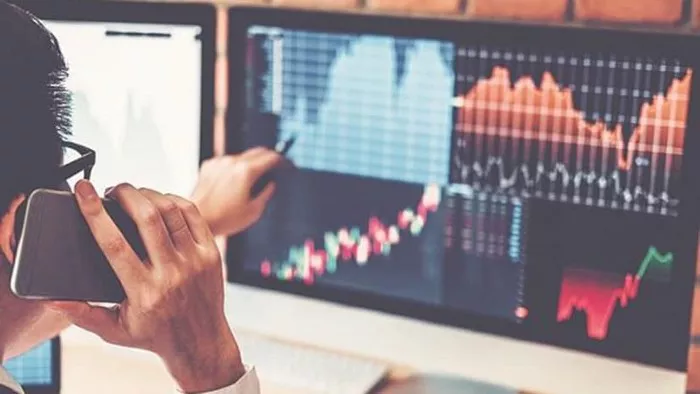Dow futures, a crucial component of financial markets, serve as powerful indicators of the overall health and sentiment of the economy. These futures contracts provide valuable insights into the future performance of the Dow Jones Industrial Average (DJIA), one of the most widely followed stock market indices globally. Understanding what Dow futures indicate is essential for investors, traders, and anyone interested in economic trends.
Defining Dow Futures
Dow futures, short for Dow Jones futures, are financial derivatives contracts based on the DJIA. These futures allow investors to speculate on the future value of the DJIA, trading on its projected performance. A Dow futures contract represents a commitment to buy or sell the DJIA at a predetermined price on a specific date in the future.
How Dow Futures Work
Dow futures operate within the realm of financial derivatives. They are standardized contracts traded on futures exchanges, such as the Chicago Mercantile Exchange (CME). Each contract sets the terms for buying or selling the DJIA at a specified future date. Investors can take two main positions: long (buying) or short (selling) Dow futures.
Price Movements and Leverage
Dow futures are known for their leverage. A small investment can control a relatively large position in the DJIA, amplifying both potential profits and losses. Price movements in Dow futures closely track the DJIA, meaning that as the DJIA rises, so does the value of Dow futures, and vice versa.
The Role of Speculators
Dow futures markets attract a diverse group of participants, including speculators. These individuals or entities trade Dow futures not as hedges but to profit from price fluctuations. Speculators can introduce additional volatility to the market and play a pivotal role in shaping short-term price trends.
Hedging and Risk Management
While speculation is a significant component of Dow futures trading, they also serve a crucial role in risk management. Market participants, such as institutional investors, use Dow futures to hedge their existing stock portfolios. By taking an opposing position in Dow futures, they can protect themselves against adverse market movements.
Leading Economic Indicator
One of the most significant aspects of Dow futures is their role as leading economic indicators. The DJIA is often viewed as a reflection of the broader economy’s health, as it consists of 30 major U.S. companies across various industries. When Dow futures point to gains or losses, it can signal the direction in which the stock market and, by extension, the economy may be headed.
Market Sentiment and Volatility
Dow futures reflect market sentiment and can provide early insights into investor perceptions of economic conditions. Positive sentiment, as indicated by rising Dow futures, can boost market confidence and potentially lead to higher stock prices. Conversely, negative sentiment, signified by falling Dow futures, can result in market uncertainty and increased volatility.
Influencing Factors for Dow Futures
Several factors influence the value of Dow futures, and they can be broadly categorized into economic, geopolitical, and market-specific factors. Economic indicators like GDP growth, employment data, and inflation rates play a significant role. Geopolitical events, such as trade disputes and international conflicts, can also impact Dow futures. Furthermore, market-specific factors like corporate earnings reports and central bank decisions can drive changes in Dow futures prices.
Trading Hours and Liquidity
Dow futures trade nearly around the clock, with trading sessions spanning overnight and weekends. This continuous trading provides global investors with access to the market, making Dow futures a highly liquid and accessible asset class.
Managing Risks with Dow Futures
Investors and traders must be mindful of the risks associated with Dow futures. Due to their leveraged nature, losses can quickly accumulate. To manage risk, it’s crucial to set stop-loss orders, diversify your portfolio, and conduct thorough research before engaging in Dow futures trading.
Using Dow Futures in Investment Strategy
Dow futures can play a pivotal role in investment strategies. For long-term investors, they can provide insights into market sentiment and potential entry or exit points for stock investments. For short-term traders, Dow futures offer opportunities for profit through speculative trading strategies.
Dow Futures and Portfolio Diversification
Diversification is a cornerstone of sound investment strategy, and Dow futures can contribute to portfolio diversification. By including assets with low correlation to traditional stocks and bonds, such as Dow futures, investors can potentially reduce portfolio risk and enhance returns.
The Global Impact of Dow Futures
The influence of Dow futures extends far beyond U.S. borders. Global financial markets closely monitor Dow futures to gauge market sentiment and anticipate economic trends. Movements in Dow futures can impact international stock indices and currency exchange rates, highlighting their importance on the global stage.
Conclusion
Dow futures are not just financial instruments; they are powerful tools for understanding market sentiment, making informed investment decisions, and managing risk. By reflecting the future expectations of the DJIA, Dow futures serve as leading indicators of economic trends. Whether you’re an individual investor, a trader, or a financial professional, grasping what Dow futures indicate is essential for navigating the dynamic world of finance and capitalizing on opportunities in the ever-evolving market landscape.


